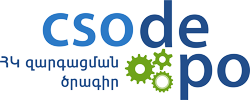Հետազոտական դրամաշնորհներ Լեռնային Ղարաբաղի ուսումնասիրության համար
Աղբյուրը ՝ Calouste Gulbenkian Foundation
As part of its “Short Term Grants for Armenian Studies” scholarship category, the Armenian Communities Department of the Calouste Gulbenkian Foundation is establishing a new scholarship category to encourage the study of contemporary Nagorno-Karabakh (Artsakh) by qualified researchers around the world. The objective is to produce new knowledge and outputs.
The grant amount will be based on the proposals received, but shall not exceed 5000 Euros.
APPLICATION
Students (Master or PhD degree), academics and researchers who are well-versed in Armenian Studies (broadly defined), are knowledgeable of current international debates in the relevant academic disciplines, and have a track record of research and publication.
The application process is the same as the “Short Term Grants for Armenian Studies” with two notable exceptions:
- the “Research Grants for the Study of Nagorno-Karabakh (Artsakh)” may not be used to attend conferences or (summer) courses.
- applications will be open only during the specific periods listed below, and not throughout the year.
Please consult the conditions document before applying.
Up to five proposals will be selected per application period.
What topics are covered?
- Any aspect of the study of Nagorno-Karabakh that is generally understudied, with particular emphasis on the post-1994 period and on the social sciences. Proposals from the following disciplines are particularly welcomed: political science/international relations, sociology, anthropology, current history, social psychology, economics, international law, peace and conflict studies, international development and humanitarian studies, heritage studies, and other closely related disciplines.
- Projects must be based on original research and must be informed by current social science and humanities approaches and theories.
- Projects must have a clear output such as a publication, an event, a production or a communication product.
- Projects with strong policy relevance and impact will be privileged.
- The language of the application can be English, French or Armenian. The output(s) of the project must be (or equally include) English, French or Armenian, but the project itself can be in another language (e.g. Russian, Farsi, etc.).
- While graduate level university students are encouraged to apply, the grants may not be used towards the attainment of a university degree.
